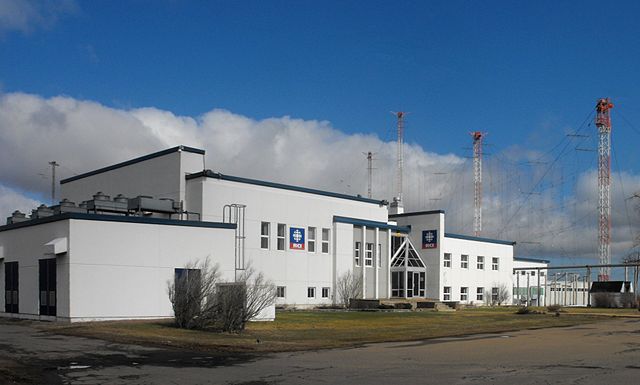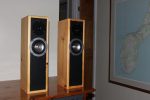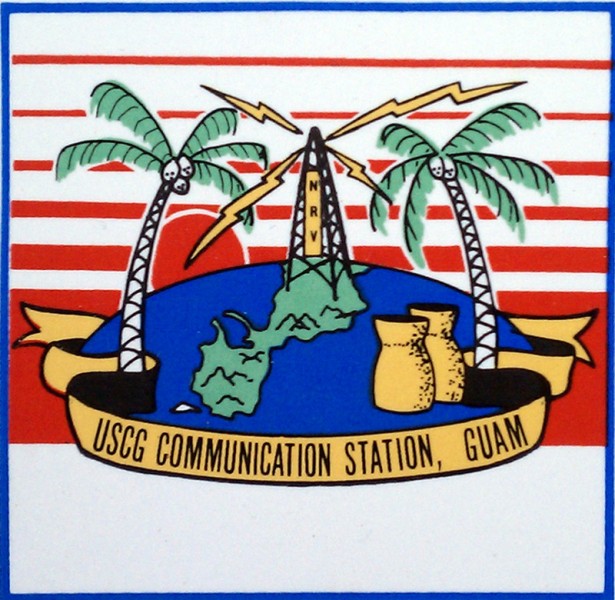In yet another example of government-sponsored international broadcasting ending, Radio Canada International calls it quits after 67 years. Effective June 24, all broadcasts from RCI’s Sackville shortwave relay site will cease. All satellite distribution will end and seventy-five percent of the RCI workforce will be laid off. This means the end of almost all RCI original content. The good news, according to the press release, is that RCI will continue on webcasting.
This is due to budget cuts to the CBC, which administers RCI. The Canadian Parliament cut the RCI budget from $12.3 million CAD to $2.3 million CAD for 2012. This cut in expenditures is saving each Canadian resident approximately $0.35 CAD per year.
Thus, this weekend is the last chance to hear RCI or CBCNord Quebec on any HF frequency.
I listened to RCI for many years, until they drastically reduced their English language shortwave broadcasts to North America in 2006. Simply put, HF broadcasters are folding up shop and moving toward web-based distribution networks. Those HF transmitters are expensive and they do not maintain themselves.
One drawback of this scheme is government censorship. It is very easy to the government to block access to sites via internet firewalls. It is very difficult to completely jam a radio station.
And perhaps those considerations are not important.

I wonder what will happen to their transmitters after sign-off? According to the wikipedia article there are nine HF transmitters in use, with power levels ranging from 100-300 KW. They are likely to be hauled away and scrapped, the building torn down.







Having these shortwave radio stations like RCI shutting down will open up the door to pirate SW radio stations,won’t it? Seems to me it would,but I could be wrong!
Dewey, you are correct in that shutting down high powered transmitters leave more of the band open for others, which might be pirate operators. Generally speaking pirate shortwave operators gather in certain segments of the band, just outside of normal international shortwave broadcasting frequencies
I am so sorry to hear about this. I, religiously would listen to KBS (S. Korea) via Sackville, until it’s end in 2006. That site put one helluva signal into Southern California.
Thanks Paul!
Happy DX
Vic
K9VC
We shut down WHRA in Maine 3 years ago….it’s parent LeSea Broadcasting is struggling in Cypress Creek….VOA is a shadow of it’s former self as is BBC. This is yet another nail in the coffin of shortwave broadcasting. Granted it’s not cost efficient…and that the internet covers the entire world….EXCEPT that it doesn’t…certainly not in a lot of the third world. Those people will increasingly be under-served by informative radio. This is important to understand…we can’t simply let it drift away without acknowledging how very critical shortwave broadcasting is and can be to the ENTIRE world…not just SOME of it. I should be ashamed to say that I had a romance with our Brown Boveri 500kw transmitter, now long dead and in pieces. I do not promote anarchy….but I do hope that somewhere in the world, pirate broadcasters take to the air on increasingly unused frequencies. Goodbye RCI
Thanks, Vic. The Sackville site had some spectacular signals, I remember listening to RCI on Guam in the late 80’s. It is a shame to see them go, along with all the others in recent years.
Howie, I agree with you and hope that somehow HF broadcasting can continue. As high powered government shortwave goes away, I wonder if the FCC would give any thought to reducing the required power levels/antenna requirements for private shortwave here? It would be nice to have a sort of domestic HF service.
Don’t know if it would happen or not,…I somewhat have my doubts about it,anyway…but it would be nice if some of those bands would open up to amateur radio use if we lose anymore shortwave broadcasters. Kinda sad in the fact I had just started getting into listening to SW beroadcasts on the 40 meter amateur band from time to time. My Yaesu FT-950 transceiver has a ‘general coverage’ receive button I can activate to listen to international SW broadcasts,…I don’t need a separate SW radio for that!